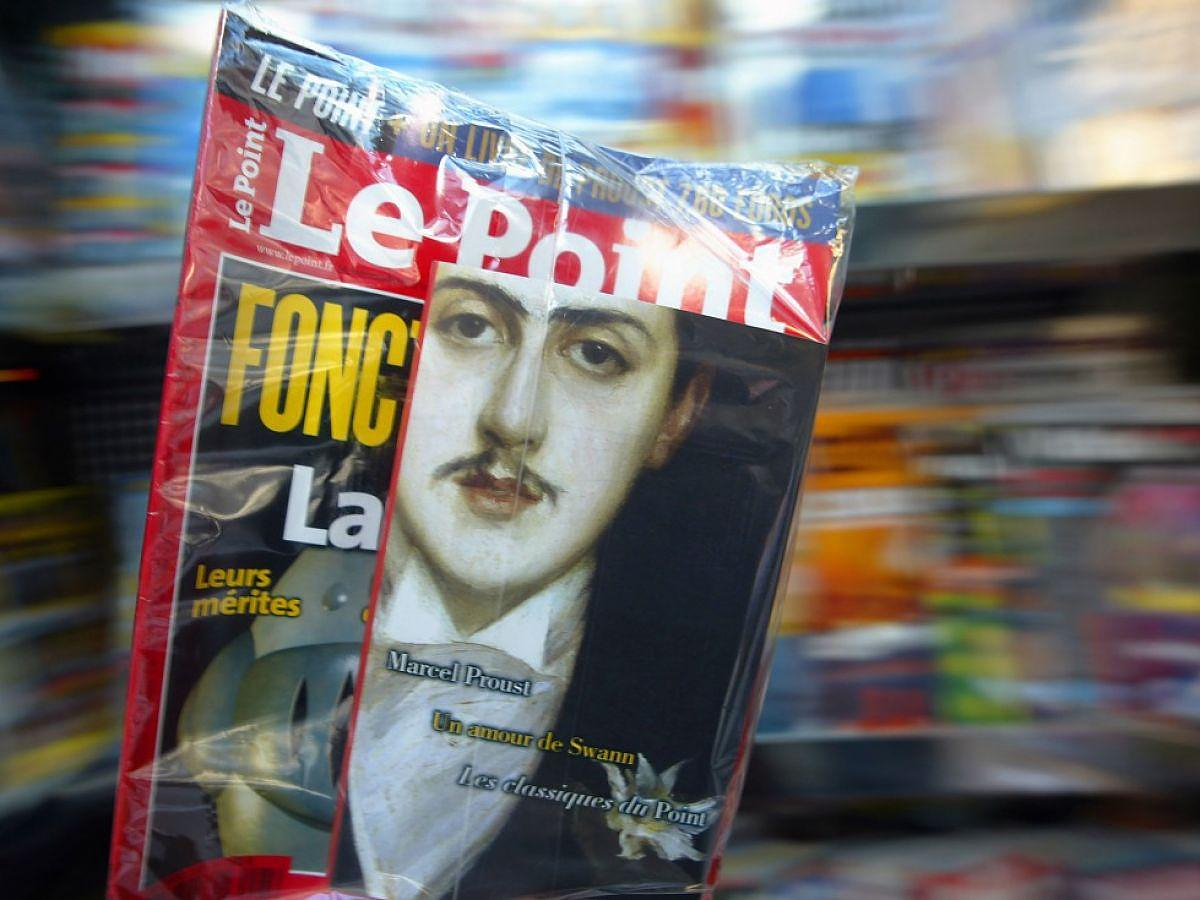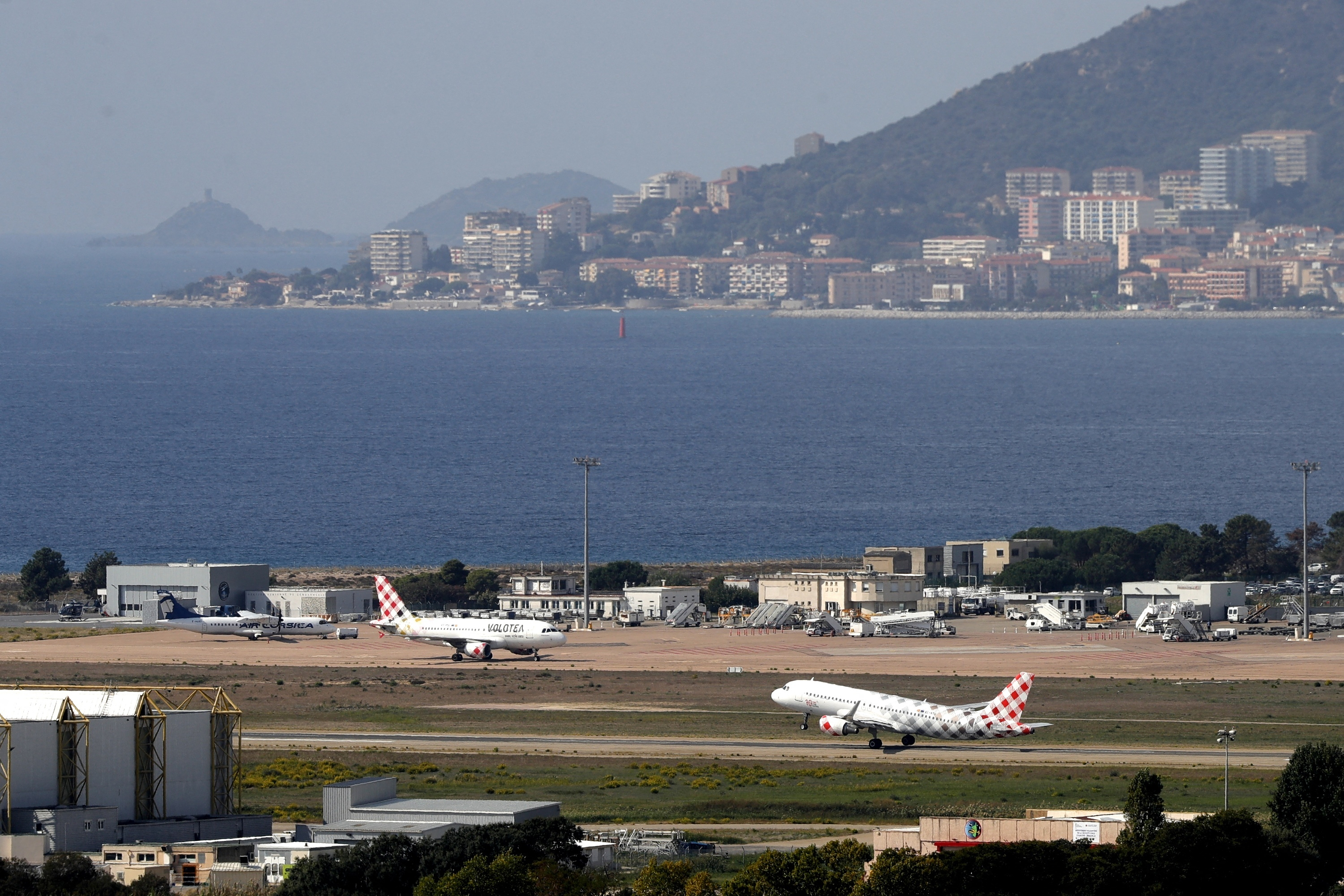Faus Nunez, of 88 years, had told many times. Then, simply forgot him. It is a story that dates back to the fifties, to the restaurant in barcelona El Abrevadero, a day that celebrated their wedding banquet. “Kubala was eating to the side and we approached to ask for a picture and an autograph. They wished us much happiness.” When I finally went to ask for the bill the waiter he answered: “Not to worry, gentleman. Mr. Kubala has already paid for everything”. The memory came on Thursday last to Núñez, who was an assistant to the writer Joan Brossa and the tailor another illustrious exazulgrana, Josep Samitier, when he found himself face to face with another Kubala, the son of the myth in favour of barcelona, who died in 2002, sick of alzheimer's disease. It was agreed in the middle of a workshop of reminiscence given by the Autonomous University of Barcelona (UAB), which has launched a program that uses football as a tool for preventing cognitive decline. It is not the first. The psychology is working to prove that football is therapeutic.
“to Chat about games of old is the kind of social interaction that allows for an active ageing, which keeps you self-sufficient, live”, declares Sara Domènech Pou, a researcher of the Foundation's Health and Aging of the UAB and director of the program. In a previous study, Domenech has already concluded that recall the goals or plays from another time was holding back the irretrievable loss of memory in people with alzheimer's disease and dementia. And thanks to the good results of your experience that is already a technique that is applied in some nursing homes around the country, that encourages patients through a piece of video of a game, the narrative that the radio made it a goal, or press clippings with alignments in white and black. Almost always the patient recalls. Sometimes, partially. Other is able to describe plays complete, who passes to who and how, and who mark the goal.
Ladislao Kubala, with his sons Branko (sat) and Carlos (red) on the lawn of the Camp Nou stadium in 1960. Gianni Ferrari GettyThis time, with the therapy that takes place with members of the Penya Blaugrana Foment Martinenc, which will soon be 63 years old –the second oldest – goes beyond this and aims to, when dealing with healthy older people, preventing or delaying the onset of the forgetfulness associated to these conditions and to the age and, incidentally, introduce discussions on issues such as gender equality in a few terms that unlock their usual prejudices and reticence. Or on intergenerational dialogue. Football also unites the grandchildren and grandparents and Domènech so you can make him see when he asks: "How do you communicate with your grandchildren?".
dr. Domenech explains that to rescue something from oblivion is hard, after erasing you can only recover what left an impression honda beyond reason. “Emotion is the last thing that he loses a patient.” And that is just the virtue that she observes in the football, the quality that makes it ideal for your purposes. It is a passion and in our societies cala to the core. “It is very important to strengthen the mental activity and cognitive stimulation to combat the deterioration”. Therefore, attests Domènech, bring to the present experiences linked to the football assumes a perfect workout for the protection of the memory of older people.
Ángel Pérez, president of the Penya Blaugrana Foment Martinenc (with the computer), between the son of Ladislao Kubala and dr. Sara Domènech Pou, addresses the audience. Juan Barbosathe walls Of the headquarters of the Penya Blaugrana Foment Martinenc hang scarves and flags of the club, as well as photos of old scenarios or covers of paper for the fifth European Cup or the victories on the field of the eternal rival. Laszly Kubala, short of Ladislaus, the name she shares with her father, listening to all Neyine the attendees and smiles with their stories. When he speaks, the rest mutes. Mind that learned to walk on the grass of the old field of Them Corts. “If I fell, the grass does not hurt”. It was precisely the successes of the victorious team led by his father who made Les Corts to stay small and I had to lift the Camp Nou. One of the attendees at the meetings and paraded the day that opened the current stadium in 1957. It was very small, but can conjure up the melodies and tonadillas, the happy environment.
Account Kubala to the attentive peñistas that his father knew and loved that never refused to pose or cross word with anyone who would stop when I walked through the city, and kept that delivery in the field. “I remember a match in which he almost could not walk and the doctor of the team had to put two fixings to keep it standing. When he returned to the field of play, the rivals said: ‘Cover it, that sure is deceiving us’. We were marking two players, and so allowed the two companions free.” Kubala remember the precise moment that everything started to go wrong in the head of his father. He had come on bike, they were in the street, and then he confessed: “Son, I don't know back home.”
Participants in the workshop of reminiscence and football last Thursday, the 29th of the Penya Blaugrana Foment Martinenc. Juan Barbosa, THE COUNTRYIn the first row, Maria del Carmen Mañosa, 75 years old, he tells of the chance encounters that in the street he had with Kubala father. When I was young was going to look for is often a friend who worked with a photographer friend of the player. “It was amazing. I was about eyes and thighs... Always said to my friends”. The rest nods in agreement: they all want to show the respect that is felt not only by the enormous player, third top scorer in the history of FC Barcelona, but by the person. Mañosa was not a regular at the Camp Nou nor a fan of these stores, as an encyclopedia, results, and alignments. But remember to perfection, he says, the 0 to 5 in the Bernabeu, with Cruyff at Barca. “Talk about football is like doing mental gymnastics. There are that relate to, and serves to join together with young people. I've always thought that diseases such as alzheimer's disease can be associated with loneliness. And I don't know if I will end up in a residency,” says Mañosa.
The host, Angel Perez, president of the rock, and also participates in therapy. Explains the premise that has guided the talks therapeutic that have taken place in the headquarters. Those taking part did not necessarily know too much of football, just to be supporters. "All encourage to the club, yes,” he says. However, estimates that have managed to gather so faithfully, week by week, people to talk openly about almost any issue, covered in a phenomenon, such as fútbol. “In some sessions, the proportion has been seven women for every three men”, stands out. The only difference, according to dr. Domenech, is that they, at first, you need a foot more explicit for taking the word in discussions. “We had to ask them directly: ‘What do you think you are?’ But little by little is left of inhibitions and began to dare”. To the point that, when commenting on the times in which women were not going to the stadium and someone tried to change the subject, account Domènech a lady reconvino saying, "Hey, now we're talking of us!". According to Domenech, this type of therapies can be effective for almost anyone, regardless of your enthusiasm for a few colors, because the football is very present in all of the routines and is a backbone of Spanish society.
Txema Corbella (in the center), stagehand at FC Barcelona for three decades, talk with the workshop attendees. Juan Barbosa, THE COUNTRYAt the session last Thursday, the closing of the workshops of reminiscence, came Txema Corbella, stagehand of the first team for more than 30 years, despite the fact that since he left the club, now five years ago, has not been allowed to see too many acts with fans. “I have a lot of respect to alzheimer's disease. A fear of terrifying,” responds Corbella. Not coincided with Kubala in the locker room, but it is often before him through the corridors of the stadium. “Loved the sauna”, he argues. When the president of the peña Foment Martinenc and the doctor told him the initiative, Corbella says that he clearly understood the therapeutic potential that cherishes the football: “it Has a force which it lacks the policy, for example; it brings people together and allows them to talk and remember.”
"What is certain is that we thought that was going to be much more difficult," says Domenech. "They are people who are reluctant to go to senior centers, which normally would not be involved in activities of this nature, not because we were trying to football". Domènech aware that the torrent of memories and emotions has been such, that none of those present have lived as a therapy to use. "They all wanted to continue". The workshops of reminiscence have been completed, yes, however, according to Domènech, there does not finish anything. The participants will now be in charge of gathering loved ones to continue with the preaching, and, speaking of football and of the past, to preserve their own health.
Kubala gives touches to the ball next to the legend of the eternal rival, Real Madrid, Alfredo Di Stefano. AFP Getty
 His body naturally produces alcohol, he is acquitted after a drunk driving conviction
His body naturally produces alcohol, he is acquitted after a drunk driving conviction Who is David Pecker, the first key witness in Donald Trump's trial?
Who is David Pecker, the first key witness in Donald Trump's trial? What does the law on the expulsion of migrants to Rwanda adopted by the British Parliament contain?
What does the law on the expulsion of migrants to Rwanda adopted by the British Parliament contain? The shadow of Chinese espionage hangs over Westminster
The shadow of Chinese espionage hangs over Westminster What High Blood Pressure Does to Your Body (And Why It Should Be Treated)
What High Blood Pressure Does to Your Body (And Why It Should Be Treated) Vaccination in France has progressed in 2023, rejoices Public Health France
Vaccination in France has progressed in 2023, rejoices Public Health France Food additives suspected of promoting cardiovascular diseases
Food additives suspected of promoting cardiovascular diseases “Even morphine doesn’t work”: Léane, 17, victim of the adverse effects of an antibiotic
“Even morphine doesn’t work”: Léane, 17, victim of the adverse effects of an antibiotic Collection of booklet A stalls in March
Collection of booklet A stalls in March Kering expects a 40 to 45% drop in operating profit in the first half
Kering expects a 40 to 45% drop in operating profit in the first half Smartphones, televisions, household appliances… MEPs adopt a “right to repair”
Smartphones, televisions, household appliances… MEPs adopt a “right to repair” Fintechs increasingly focused on business services
Fintechs increasingly focused on business services The standoff between the organizers of Vieilles Charrues and the elected officials of Carhaix threatens the festival
The standoff between the organizers of Vieilles Charrues and the elected officials of Carhaix threatens the festival Strasbourg inaugurates a year of celebrations and debates as World Book Capital
Strasbourg inaugurates a year of celebrations and debates as World Book Capital Kendji Girac is “out of the woods” after his gunshot wound to the chest
Kendji Girac is “out of the woods” after his gunshot wound to the chest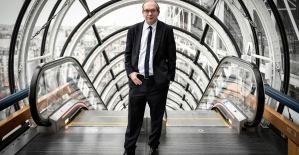 The Court of Auditors scrutinizes the management and projects of the Center Pompidou
The Court of Auditors scrutinizes the management and projects of the Center Pompidou Skoda Kodiaq 2024: a 'beast' plug-in hybrid SUV
Skoda Kodiaq 2024: a 'beast' plug-in hybrid SUV Tesla launches a new Model Y with 600 km of autonomy at a "more accessible price"
Tesla launches a new Model Y with 600 km of autonomy at a "more accessible price" The 10 best-selling cars in March 2024 in Spain: sales fall due to Easter
The 10 best-selling cars in March 2024 in Spain: sales fall due to Easter A private jet company buys more than 100 flying cars
A private jet company buys more than 100 flying cars This is how housing prices have changed in Spain in the last decade
This is how housing prices have changed in Spain in the last decade The home mortgage firm drops 10% in January and interest soars to 3.46%
The home mortgage firm drops 10% in January and interest soars to 3.46% The jewel of the Rocío de Nagüeles urbanization: a dream villa in Marbella
The jewel of the Rocío de Nagüeles urbanization: a dream villa in Marbella Rental prices grow by 7.3% in February: where does it go up and where does it go down?
Rental prices grow by 7.3% in February: where does it go up and where does it go down? Europeans: “All those who claim that we don’t need Europe are liars”, criticizes Bayrou
Europeans: “All those who claim that we don’t need Europe are liars”, criticizes Bayrou With the promise of a “real burst of authority”, Gabriel Attal provokes the ire of the opposition
With the promise of a “real burst of authority”, Gabriel Attal provokes the ire of the opposition Europeans: the schedule of debates to follow between now and June 9
Europeans: the schedule of debates to follow between now and June 9 Europeans: “In France, there is a left and there is a right,” assures Bellamy
Europeans: “In France, there is a left and there is a right,” assures Bellamy These French cities that will boycott the World Cup in Qatar
These French cities that will boycott the World Cup in Qatar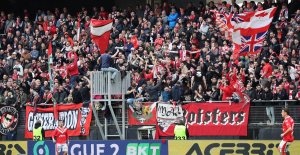 Football: VAFC supporters are ironic after their descent into National
Football: VAFC supporters are ironic after their descent into National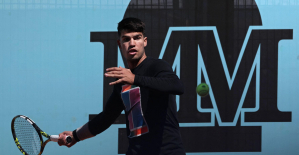 Tennis: Carlos Alcaraz should play in Madrid
Tennis: Carlos Alcaraz should play in Madrid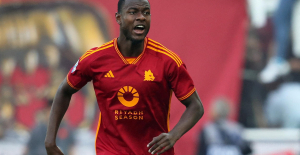 Football: victim of discomfort in the middle of a match in mid-April, Evan Ndicka will resume training with AS Roma
Football: victim of discomfort in the middle of a match in mid-April, Evan Ndicka will resume training with AS Roma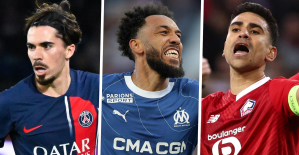 Ligue 1: PSG almost champion, OM, shock for the C1… 5 reasons to follow an exciting evening
Ligue 1: PSG almost champion, OM, shock for the C1… 5 reasons to follow an exciting evening





